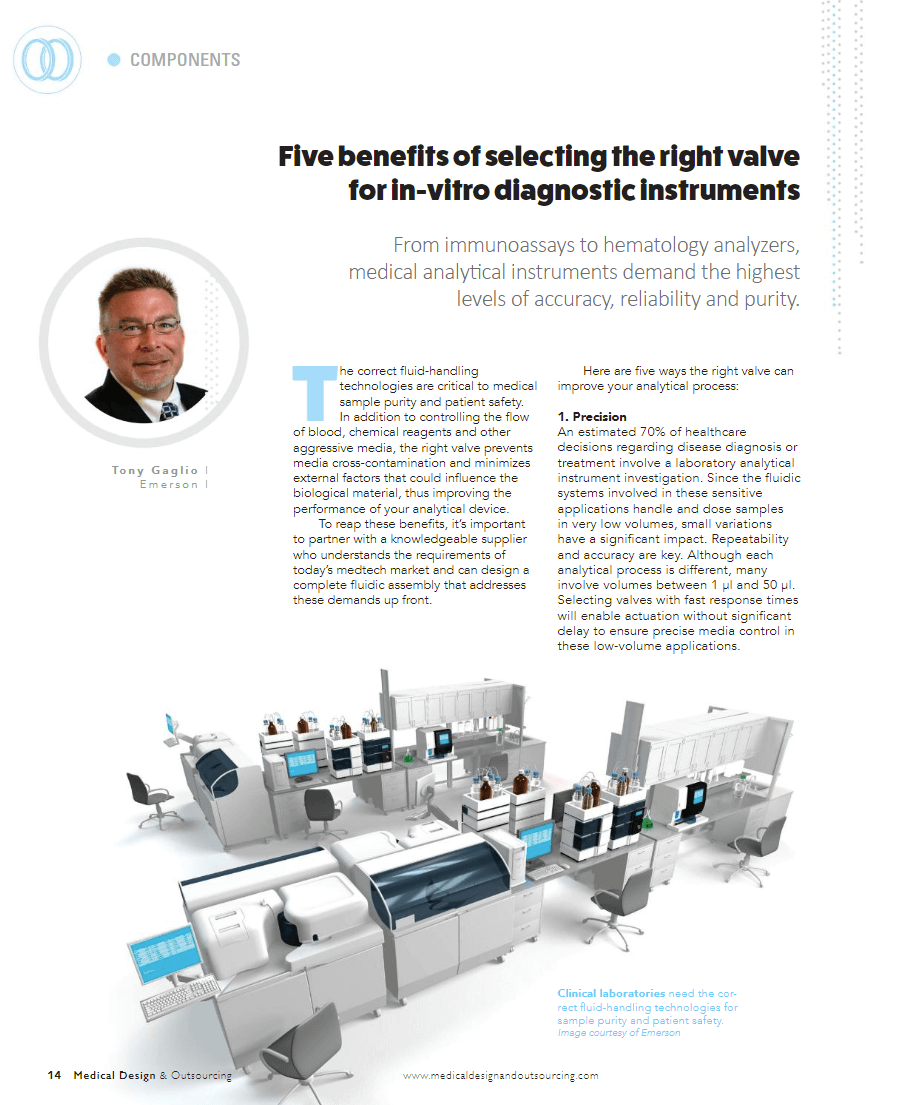Final control is where controlling a manufacturing or production process happens. It’s the valves in the line or vessel inlets and outlets that keep the process operating in its intended range. Often we think of large industrial valves, but even in in-vitro analytical and medical equipment, these valves must be reliable and precise.
 In a Medical Design and Outsourcing article, Five benefits of selecting the right valve for in-vitro diagnostic instruments, Emerson’s Tony Gaglio highlights the high stakes of valves to provide the medical instruments they serve with the highest accuracy, reliability and purity.
In a Medical Design and Outsourcing article, Five benefits of selecting the right valve for in-vitro diagnostic instruments, Emerson’s Tony Gaglio highlights the high stakes of valves to provide the medical instruments they serve with the highest accuracy, reliability and purity.
Tony opens highlighting these stakes.
In addition to controlling the flow of blood, chemical reagents and other aggressive media, the right valve prevents media cross-contamination and minimizes external factors that could influence the biological material, thus improving the performance of your analytical device.
Five considerations for the valves medical instrument suppliers need to consider include:
- Precision
- Reliability
- Fast time to market
- Smaller footprint
- Customization
Given the low volumes handled by these instruments, precision is a must, and:
Repeatability and accuracy are key. Although each analytical process is different, many involve volumes between 1 and 50 µl. Selecting valves with fast response times will enable actuation without significant delay to ensure precise media control in these low-volume applications.
From a reliability standpoint:
…fluidic valves must be able to withstand millions of actuations. To avoid premature valve failure, a fluidic system supplier should design the system with the lowest number of fluid connections to minimize the risk of leakage and ensure all valves within the assembly are quality tested.
Read the article for the considerations around time to market, footprint size and the ability to accommodate customizations in fluidic design to address aspects such as chemical resistance, heat dissipation, fluidic path, and compliance.
Visit the Analytical and Medical section on Emerson’s ASCO site for more on valves and other components used in analytical and medical instruments. You can also connect and interact with other fluid control experts in the Fluid Control & Pneumatics group in the Emerson Exchange 365 community.





